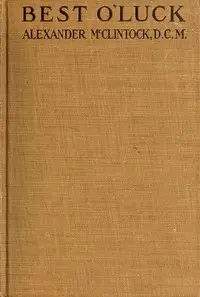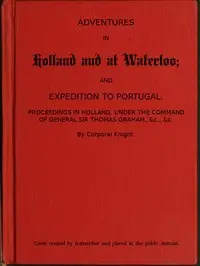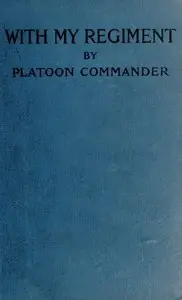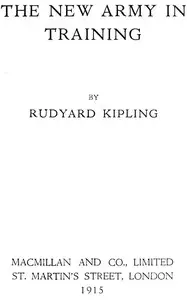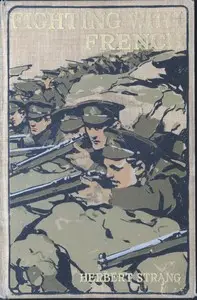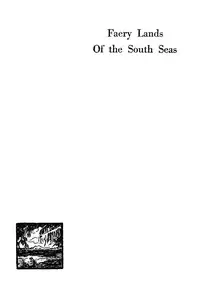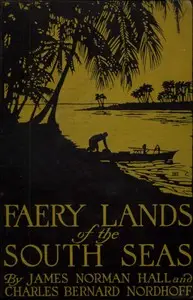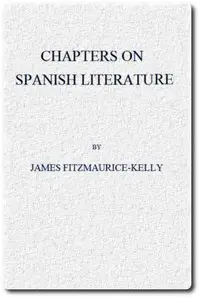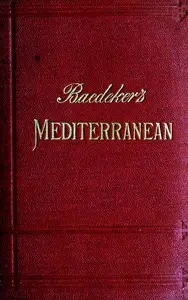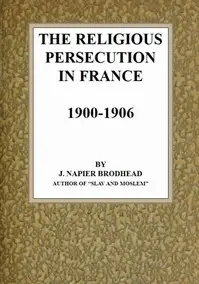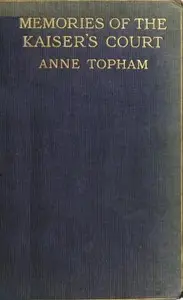"Kitchener's Mob: Adventures of an American in the British Army" by James Norman Hall is a story set during World War I about an American named Jamie who decides to join the British Army, focusing on his transformation from a regular guy into a soldier. He enlists to join Kitchener's army, meeting all kinds of new people. The story looks at how he and his fellow recruits learn to become soldiers, dealing with the hard parts of army life and getting ready to face the war. The book starts with Jamie joining up, showing the excitement and chaos of the recruitment office. He learns from experienced soldiers and gets to know his fellow recruits, even trying to speak with a Cockney accent to fit in. As he gets deeper into the life of a soldier, the book shows both the funny and serious sides of their training, including a lot of camaraderie, but also the difficult things they must face as they go to the front lines.

Kitchener's Mob: Adventures of an American in the British Army
By James Norman Hall
An eager American enlists in the British Army amidst World War I and gets a raw taste of war coupled with heartwarming camaraderie.
Summary
About the AuthorJames Norman Hall was an American writer best known for The Bounty Trilogy, three historical novels he wrote with Charles Nordhoff: Mutiny on the Bounty (1932), Men Against the Sea (1934) and Pitcairn's Island (1934). During World War I, Hall had the distinction of serving in the militaries of three Western allies: Great Britain as an infantryman, and then France and the United States as an aviator. His awards include the Croix de Guerre, the Médaille Militaire, the Légion d'Honneur and the Distinguished Service Cross. After the war, Hall spent much of his life on the island of Tahiti, where he and Nordhoff wrote a number of successful adventure books, many adapted for film. He was also the father of Conrad L. Hall, regarded as one of the ten most influential cinematographers in film history.
James Norman Hall was an American writer best known for The Bounty Trilogy, three historical novels he wrote with Charles Nordhoff: Mutiny on the Bounty (1932), Men Against the Sea (1934) and Pitcairn's Island (1934). During World War I, Hall had the distinction of serving in the militaries of three Western allies: Great Britain as an infantryman, and then France and the United States as an aviator. His awards include the Croix de Guerre, the Médaille Militaire, the Légion d'Honneur and the Distinguished Service Cross. After the war, Hall spent much of his life on the island of Tahiti, where he and Nordhoff wrote a number of successful adventure books, many adapted for film. He was also the father of Conrad L. Hall, regarded as one of the ten most influential cinematographers in film history.


